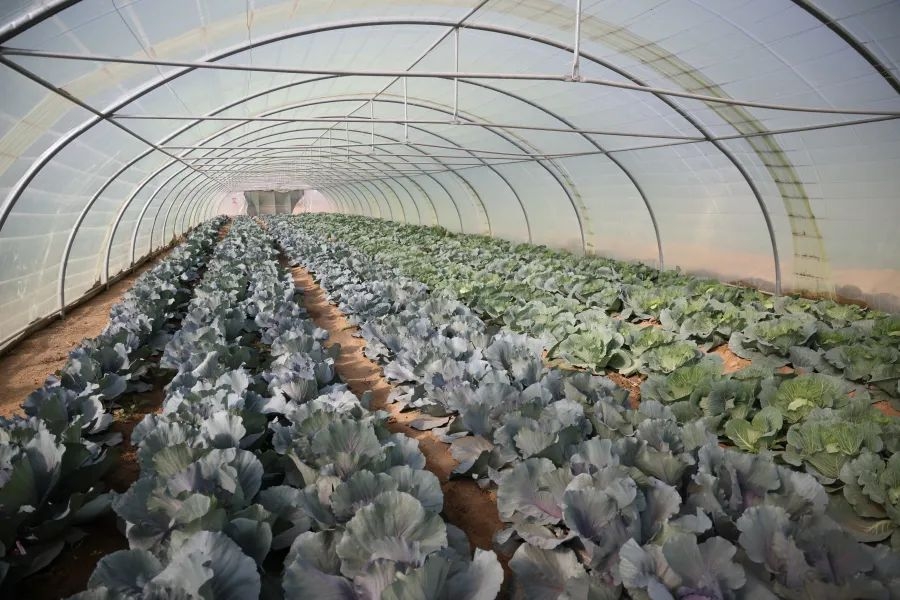Father Ammar Yako, the founder and supervisor of the agricultural greenhouse project, said that the church adopted his idea to establish this pioneering project with support from the Italian organization Foxiv, to provide job opportunities for the town's youth from various backgrounds.
Yako highlighted the church's contribution by providing land it owns to establish twenty glass houses on it as the first step in the project. He also followed up with the government authorities to obtain the necessary official approvals.
He praised the exceptional support provided by the Foxif organization and its adoption of the project, as it "dug a well to provide water for agriculture, established a solar cell system to provide electricity, and built warehouses and other facilities." In addition to providing greenhouses and all agricultural supplies, such as seeds and fertilizers.
Three people work in each house, providing job opportunities for sixty young people, which means a source of income for sixty families, in addition to the administrators and guards. Yako elaborated: "The young people take care of planting various seasonal vegetables, harvesting them, and marketing them, so that the entire proceeds return to them.


The benefits of the project are not limited to its workers; providing vegetables contributes to lowering their prices in the local market, which helps low-income families to be self-sufficient and provides a food source for the entire region's residents.
In his efforts to develop the project in the future, Yako said: "We are also striving to establish a peat soil factory, which will allow us to expand the greenhouse project by growing new crops like strawberries and marketing the surplus to nurseries and gardens.
He added, "We are in the process of planting around two hundred evergreen trees to contribute to environmental preservation through their role in purifying the air, stabilizing the soil, and increasing green spaces.
It is worth mentioning that the project does not exclusively serve Christian youth; three Muslim families also benefit from providing job opportunities for three Muslim young people.
Yako called on humanitarian organizations to support similar productive projects and contribute to the development of existing ones, for the benefit of the land and humanity. He also encouraged the people of Baghdida to optimally invest their lands and benefit from modern technologies.
Despite the importance of providing job opportunities and a source of livelihood for the youth, the project aims to deepen their sense of the value of the land and direct their attention to a deeper understanding of the reciprocal relationship between the generous land and those who cultivate it.
And Yako concluded: "Our land is fertile, and our youth are generous, and the more they toil and labor on the land, the more it rewards them with its bountiful fruits. Their bond with the land of their ancestors and forefathers strengthens, and they completely refuse to abandon or forsake it."
Britain Refuses to Allow Trump to Use Its Bases to Strike Iran.